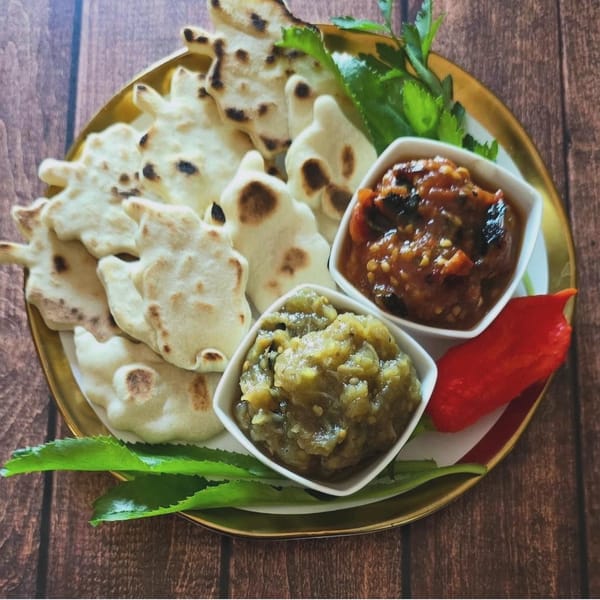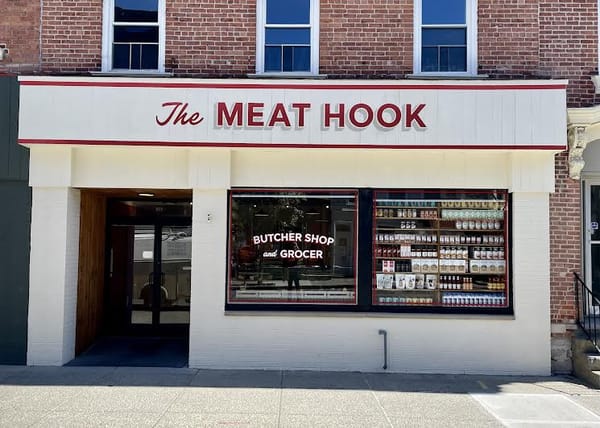
AgriCulture bloggers Peter Davies and Mark Scherzer are the owners of Turkana Farms in Germantown, NY. This week Mark writes: You know you’re living in agitated times when the usual torrent of year-end charitable solicitations in your in-box is dwarfed by a tsunami of political entreaties, beseeching you to tell your public servants to vote or to act one way or another. This week, in our collective inboxes, there were all the expected issues—tax cuts, extending unemployment, Don’t Ask Don’t Tell, the James Zadroga 9/11 health bill, the Dream Act. There were also a few that stood out because they were agriculture oriented. One message was from Credo Action (a for-profit company that promotes progressive social causes) asking us to encourage Attorney General Holder and Agriculture Secretary Vilsack to take antitrust action to break the stranglehold of the huge monopolistic corporations that dominate America’s food supply—companies like Monsanto (seeds), Dairy Farmers of America (milk), Cargill, Smithfield, and JBS (meat processing), and Kraft, Conagra, and General Mills (industrial foods). Other groups focused on the Food Safety Act (S.510), a law which would give the Federal Food and Drug Administration much wider powers over food sales. These powers would include the ability to mandate the recall of tainted food, a power the F.D.A. does not have now. It would also permit, among other measures, periodic inspections of farms, as well as inspection of imported produce. The Food Safety Act has already passed both houses of Congress but, because of an arcane constitutional technicality, it must be voted on again in the Senate. It may, therefore, succumb to the partisan wrangling that is preventing votes on much unfinished business.

The status of small farms is at issue in both the antitrust push and the Food Safety Act. Those advocating for antitrust action against big producers are concerned about their predatory behavior toward small farmers, actions such as the recent suit by Monsanto against a Canadian farmer for planting seeds he obtained by gathering them from Monsanto-patented plants, rather than by buying new seeds from Monsanto. With the Food Safety Bill, one of the most contentious issues has been whether to exempt small farmers from the bill’s regulatory scope. Michael Pollan (Omnivore’s Dilemma) and Eric Schlosser (Fast Food Nation), both of whom have documented the health hazards associated with mass-produced industrial food, wrote an op-ed piece on November 29 in The New York Times advocating passage of the Food Safety Act. The case they laid out for better regulation of food production overall is compelling, based on the significant human cost of food-borne illness every year. Regulation would be a good thing both for consumers, who would gain protection, and for the food industry, which could regain consumers’ lost confidence by playing by the rules. Pollan and Schlosser also support the small-farm exemption. That exemption, proposed by Senator John Tester of Montana, himself a hay farmer, would remove from the purview of the federal law farms with less than $500,000 in annual income that sell most of their produce locally (to individuals, grocers, or restaurants within 275 miles). We would certainly qualify. As a safeguard, the exemption could be revoked if a small farm is associated with food-borne illness.

The left and right wings of the blogosphere share an antipathy to the proposed law that is not appeased by the exemption. For the tea partiers on the right, the bill is yet another nanny-state intrusion into the economy. For the progressive locavores on the left, it is still too likely to lead to interference with the local food movement; they fear that small farmers will face increased costs and time commitments that will prove unsustainable. As old timers around this here can recall, regulation spelled the death knell for all the small local cider mills that were once ubiquitous in this region. Peter was quick to volunteer his opinion on the issue, of course. He likes the idea of regulating the big food producing corporations, but not the small farms. He believes small farmers are on the whole idealistic, engaged in an activity that expresses good values, which translates into good behavior and good, safe food. They have all the other usual incentives to good behavior any small business has, such as fear of litigation. He also sees an inherent control on bad farm practices when the farmers and their customers are so directly linked. He argues that we know who we are producing for, and would feel terrible if we were responsible for an illness among our friends and customers. If there were a problem. there would be no mystery as our customers would know exactly who to go to. Moreover, our buyers are free to come to the farm and inspect things for themselves, and some do.

I am a bit less trusting in idealism as a protection, and I do see a place for regulating small farms. I don’t buy the proposition that all small-farm food will be safely raised, as long as you can look your farmer in the eye. (Lots of people looked Bernie Madoff in the eye and trusted him too). There are corner cutters and sloppy folks at every level of every business. State regulation exists now, but is about as distant as you can imagine, and, in times of budgetary shortfall, state regulation, already ill-enforced, tends to get deferred or diminished. If, in the future, some small farm were to distribute contaminated food and the public were to realize how underregulated small farms are, it is likely to cause a crisis of confidence for all small farms. But ultimately, after much debate with myself, I come to substantially the same conclusion as Peter. I agree that there are legitimate reasons to distinguish between small farms and large- scale industrial food production. Risks of food-borne illnesses are considerably amplified by the latter. Many more people will be protected if our precious few safety inspectors focus on the places that supply the most people and present the greatest potential routes to contamination. For example, ground meat that mixes the beef of thousands of cows is very different from a small farmer selling the ground beef from one or two cows, and needs a much more sophisticated tracking and supervising process.

Further, there is ample evidence that bureaucracies have their own institutional imperatives that make it unwise to use a single regulatory system for both big industrial operations and small farmers. Look, for example, at the IRS: instead of concentrating on the big corporations, who routinely hide all sorts of taxable income, auditors have focused on lower-income individuals because it's so much easier for the auditors to then meet their bureaucratic productivity targets. The small fry cannot afford the kind of professional help that the large organizations can, and they lack the lobbyists and other influencing mechanisms that too often result in deflected scrutiny. For these reasons, I conclude that small producers need a different type of regulation, and that the Food Safety Act’s exemption for small producers makes good sense. But in my view that exemption probably should be coupled with a requirement that consumers be provided with all the facts necessary to assess the risks and benefits of small farm products. They should have the right to inspect the entire food production process at the farms from which they buy. Armed with that knowledge, those who want to buy unpasteurized cider, raw milk, or any other product from an unregulated small farm would have the right to do so, without legal risk to themselves or to the farmers from whom they’re buying. At the risk of sounding like one of those in-box messages beseeching you to do something now, I’ll just remind you that it might be good to let your U.S. Senators know that passage of the Food Safety Act with the small farm exemption is important to you. —Mark ScherzerFor the complete archive of past AgriCulture blogs, click here.








